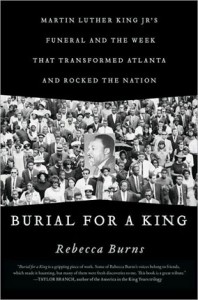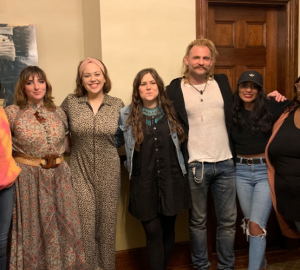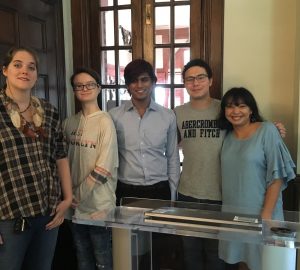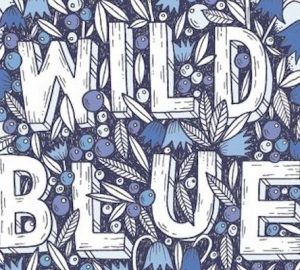 Author and journalist Rebecca Burns is a woman that buries her heels into subject matters most would avoid. A longtime fan of history who served as editor-in-chief of “Atlanta Magazine” for seven years, Burns’ works are collections of what she calls “Southern history and the intersection of race, religion and politics.”
Author and journalist Rebecca Burns is a woman that buries her heels into subject matters most would avoid. A longtime fan of history who served as editor-in-chief of “Atlanta Magazine” for seven years, Burns’ works are collections of what she calls “Southern history and the intersection of race, religion and politics.”
Her new book “Burial for a King” examines the events surrounding Martin Luther King, Jr.’s Atlanta funeral and how it impacted the city.
Q. Having just celebrated King’s birthday, how does it feel as a writer to have placed detailed accounts of these historic events in your book?
A. I think it really confirmed how important his legacy is and what he stood for. I’m glad — and hopeful — that the book adds just a little bit to understanding his legacy.
Q. What is most challenging about putting pen to paper?
A. I love to research so much and I will just research and put off writing and the actual process. I think research is fun and easier for me. I am very curious and find things out and then you go after your questions. You can never fully know everything and you want to keep going. The writing is the hard part for me.
Q. How did you do your research and collect your data? When do you know you have enough?
A. I interviewed people who were at the event, and I went through archives, FBI files and White House documents from the Lyndon B. Johnson library — files and transcripts. They have so much rich information on [King’s] life.
The last book that I wrote, “Rage in the Gate City,” was based on events that happened 100 years ago, so there wasn’t anyone around to interview. This time around I had the chance to interview people who had actually been there.
People like to talk about important things that impacted their life. On the website people can continue to share stories if they were there first hand, or knew someone who was there. Those stories will go into the next edition.
Q. How do you relate to the individuals you are interviewing?
A. What I try to do is to think about their [point of view] and to listen to them as carefully as I can. You have to think about a common experience and do your homework, and ask smart questions.
Q. How do you show them that you are not biased and only representing the facts?
A. Ask straightforward questions and just show that you did your research. This shows that you are not being biased and people will see that you know your stuff.
Q. How do you keep the human element in what you write, without losing your journalistic style?
A. Every writer writes in a different way and some writers are flowery and some are straightforward. I tend to be very straightforward and I have a very journalistic, direct and blunt form that works for me. Writers should write what is natural and honest and I think writing something in a book format is still something new for me versus writing in a journalistic prose.
Q. How do you feel about books leaving the print format and going the electronic route?
A. There will be a place for print versions, but many are going electronic. I moved into a different role with this new book making apps for the magazine. The shift for my job as a Digital Strategist is where the magazine industry is going. You still have to write, get it published and get the work done — the finished product will just be something else.
Q. What was the first thing you did after you finished each book?
A. I always want everything to be better and as soon as I sent it off, I thought of 17 things I could do better. I am a perfectionist, but there is also a balance and you have to let it go.
Q. When did you start writing?
A. I started writing as a little kid and reading before I was four. I started making magazines and books. I went to college to be a journalist and I loved the research in becoming a journalist.
Q. What are the number one things you would like a new journalist and/or writer to know in the business?
A. Important thing — try really hard to be accurate when reporting. A lot of young writers want to write the long pieces without the research.
Q. Any final thoughts for young writers?
A. Keep trying new things. Read a lot. The number one thing is to be very curious and really excited. Always want to find out new things and that will make your work so much stronger.



























